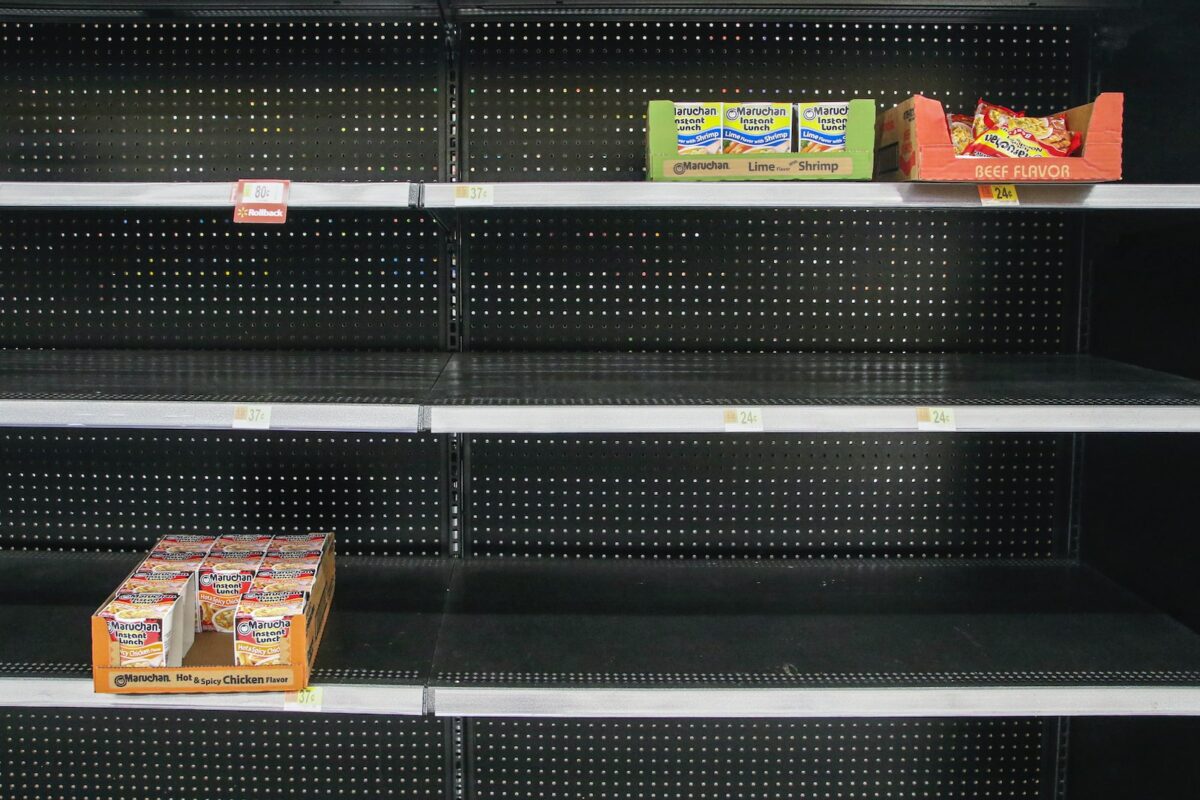Despite it being months since my favorite brand and style of butter has been available at the local grocery store, I still glance at the shelf where it normally sits each time I walk by — just in case the red-topped container reappears.

And, guess what? It reappeared a few days ago.
I did a double take as I passed by and then quickly backed up to grab one.
The temptation to purchase several was real, but I knew others would enjoy reuniting with our Land O’Lakes friend as well, so I left with only one.
Why this particular tub of butter is among the random items currently hard to find, I’m not sure, but the concept of scarcity and shortages may be a reality we can no longer ignore.
Going without
It’s been nearly 50 years since we experienced the extreme fuel shortage of the 1970s.
And while we’ve experienced a rough season of crops — avocados, peaches, tomatoes, etc. — here and there, those under the age of 50 had not truly felt the pinch of a shortage until the toilet paper scare in 2020.
Since then, we’ve learned how to conserve as well as how to make our own masks and disinfect our homes without name brand cleaners.
Many parents with young babies continue struggling to find formula, however, and the lack of a variety of other commodities affects pricing, scheduling and decision-making for countless others.
Growing list
Still, it’s the list of shortages in the workforce that seems to grow by the day — teachers, bus drivers, nurses, paramedics, police officers, counselors, airline pilots, air traffic controllers, flight attendants, baggage handlers, waitstaff at restaurants, football officials and on and on.
And in the ministry, shortages are real for churches when it comes to pastors, ministers of music, piano players, Sunday School teachers and a variety of volunteer positions.
We have plenty of people capable of working, and we know people are called to these various roles, so what’s different now?
Why are so many positions and areas of responsibility left vacant with no one coming behind to fill in when others leave?
And why are so many bailing out?
We’ve heard it called the Great Resignation, and it does seem to tie closely to the life and culture we now know as we’ve emerged from the worst of the pandemic.
The number of people leaving their positions could be related to new perspectives on what is important in their daily routines, as well as realizing we can live on less in many situations.
Lack of appreciation
I also wonder if it has to do with the harsh and negative way so many in society treat others today.
Pile a constant flow of ridicule and criticism on top of already excessive demands, and even the best of the best can only take so much.
Many argue higher salaries and better benefits will do the trick, and if employers truly can do better for their employees they should, but I’m not sure we can buy ourselves out of the current workforce crisis.
We need better training, consistent mentoring and more ownership. We need trust, flexibility, security and commitment among team members.
We need to learn to appreciate and value each other as individuals as well as what each of us brings to the table.
Strive for excellence
We need to challenge each other to strive for excellence while also demonstrating grace in the moments where grace is needed.
We need to learn humility and how to be teachable — and to understand the importance of step-by-step advancement that allows for life and work experience before we are in leadership positions attempting to bring others along.
We need a workforce in which many leaders have studied at the feet of the ultimate mentor and leader — Jesus Christ.
And we need congregations constantly looking for people in their communities to help move forward in their circumstances and areas of influence.
Is it possible the shortages we see all around us could be the exact opportunity the Church needs to stand out among the chaos and make a difference one life at a time?
Covington Baptist Association churches said yes to the idea of investing in others earlier this year and are celebrating the first fruits of their efforts this week.
What are ways your church can stand in the gap during this season of shortages?






Share with others: